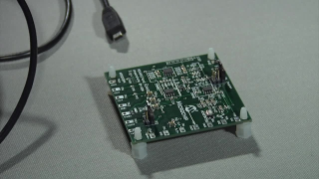Electronics Specifier Design & Microchip MCP19114 Flyback Standalone Evaluation Board
Win a MCP19114 Flyback Standalone Evaluation Board (ADM00578) from Electronics Specifier Design and if you don’t win, receive a 20% off voucher, plus free shipping for one of these boards.
The MCP19114-Flyback Standalone Evaluation Board and Graphical User Interface (GUI) demonstrate the MCP19114 performance in a synchronous Flyback topology. It is configured to regulate load current and is well suited to drive LED loads. Nearly all operational and control system parameters are programmable through the integrated PIC MCU core.
The MCP19114 is a mid-voltage (4.5-42V) analog-based PWM controller with an integrated 8-bit PICTM microcontroller. This unique product family combines the performance of a high-speed analog solution, including high-efficiency and fast transient response, with the configurability and communication interface of a digital solution. Combining these solution types creates a new family of devices that maximizes the strengths of each technology to create a more cost-effective, configurable, high-performance power conversion solution.
Already preprogrammed with firmware designed to operate with the GUI interface, Microchip’s MPLABX IDE can be used to develop and program user-defined firmware, thus customizing it to the specific application. The MCP19114-Flyback Standalone Evaluation Board contains headers for ICSPTM (In-Circuit Serial Programming) as well as I2C™ communication. Several test points have been designed into the PWB for easy access and development purposes.
The MCP19114-Flyback Standalone Evaluation Board also demonstrates an optimized PCB layout that minimizes parasitic inductance, while increasing efficiency and power density. Proper PCB layout is critical to achieve optimum MCP19114 operation as well as power train efficiency and noise minimization.











